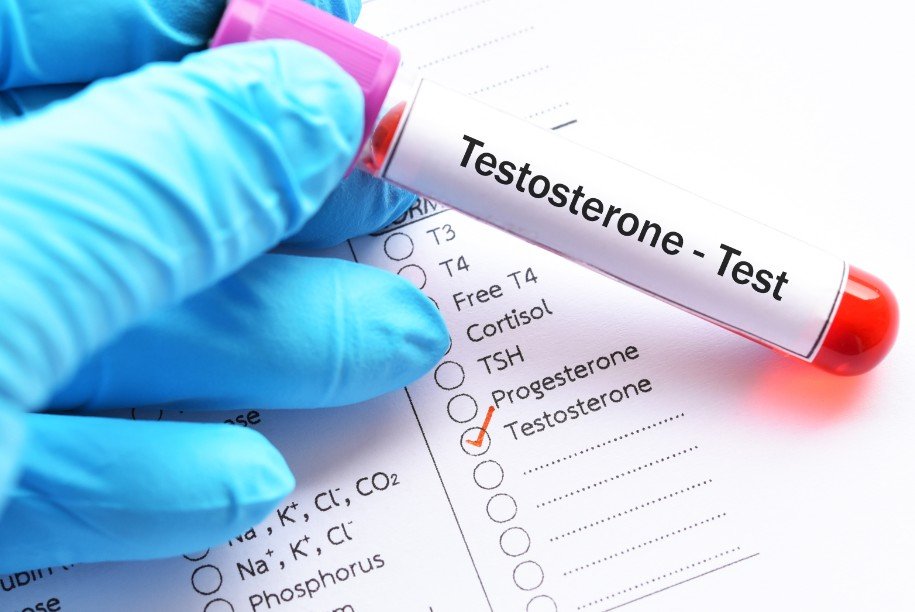It is a fact that all people produce a certain level of testosterone throughout their lifespan. No one is testosterone-free, except maybe some individuals who might have a medical disorder preventing the release of testosterone.
If you suspect you have low testosterone levels in your body, you may need to address this directly. Having low levels of testosterone can have a corresponding impact on your body and overall health.
Effects of Low Testosterone Levels on Men
When testosterone is mentioned, people automatically assume that it refers to the male hormone that influences the development of certain characteristics attributed to males.
The increase in testosterone is most remarkable during puberty when young males will develop characteristics. It is responsible for the deepening of their voices and robust growth of facial hair and hair on other parts of the body. It also helps in the development of thicker bones, muscles, and sperm.
However, as males age, their testosterone levels may start to decrease which affects their health in the following ways:
- They start to lose the ability to develop and sustain an erection (which is necessary for sexual intercourse).
- Their sex drive may be lowered.
- They start to experience some hair loss, as well as a receding hairline.
- Their testicles may shrink while their scrotum might feel softer.
- Their muscle mass may lessen while their body fat percentage may go up.
- Their semen volume may decrease, which may affect their ability to ejaculate during sexual intercourse and their sexual fertility as well.
- They may develop insomnia (difficulty sleeping) and sleep apnea (a sleeping disorder marked by temporary pauses in breathing during sleep).
- They may feel “hot flashes”.
- They may experience mood fluctuation resulting in an inability to focus, feelings of irritability, and even development of depression.
- Their energy levels may seem lower, with some complaining of fatigue, and a feeling of being too sluggish to exert effort.
- Some men may develop gynecomastia, which in layman’s terms means “enlargement of the breasts”.
Men who experience these symptoms should consult professional help who may recommend supplements such as longjack tongkat ali that can foster an increase in testosterone levels.
Effects of Low Testosterone Levels on Women
Women do produce some testosterone but not to the extent that men do. The female ovaries and adrenal glands are responsible for producing testosterone in women.
Testosterone influences the female body in the areas of sex drive, fertility, development and distribution of muscle mass, and production of red blood cells.
When the testosterone levels in the bodies of women start to decrease, women may experience the following health effects:
- They begin to lose their hair.
- They may develop reduced bone mass, with the density of the bones affected. A woman with lower-than-normal testosterone levels may develop bone fractures as a result.
- They may start to gain weight.
- They may develop vaginal dryness.
- Their sex drive may be reduced and they may even feel less satisfied after sexual intercourse.
- Their menstrual cycle may fluctuate sharply.
- They may have problems with fertility.
- They may have problems sleeping.
- They may develop issues with muscle weakness as well as fatigue.
- They may slow down because they will feel sluggish.
It is advisable for women who start to experience these symptoms to visit their doctor who may test for menopause. Remember that other health problems such as thyroid disease, chronic stress, anxiety, and depression may also be the underlying cause.
Why Testosterone Levels Fall
The most prevalent reason for falling testosterone levels in both men and women is simply the normal aging process. As men and women age, their testosterone levels will probably decrease slowly over time. This should not be cause for alarm.
However, if you are starting to experience the symptoms, it would be best to seek the advice of a doctor to rule out any serious underlying health problems.
It should also be mentioned that some men and women may be on medication prescribed by their doctor for other symptoms or conditions. It could contribute to the development of symptoms of low testosterone. If this is the case, it is advisable to clarify with the doctor if the patient should reduce or eliminate the medication, or to continue with the treatment.
Conclusion
If you are starting to experience the symptoms mentioned above, it may be time to have a check-up. Many times, the fall in testosterone levels is simply due to aging. So the doctor may just have to provide some kind of supplements that will help the patient to cope with the symptoms of reduced testosterone in the body.
However, if you feel that there may be something more serious happening, it would be wise to inquire with the doctor. Check if there are other reasons for the falling testosterone levels aside from just aging.

